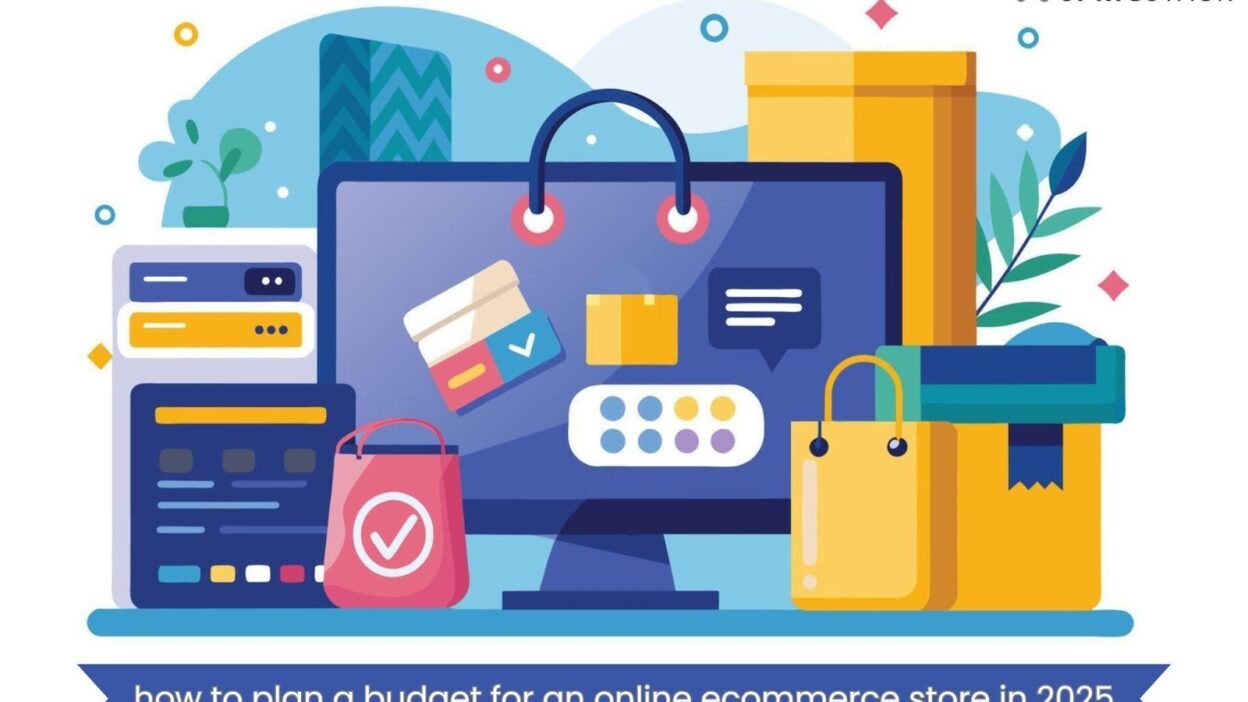Launching an eCommerce store is not just about listing the products, deciding their price, clicking the pictures, and writing engaging descriptions. Instead, a lot more work is involved than you can comprehend. From deciding on the commerce platform engine to developing the website, you will have to work from the ground up. And it involves huge upfront costs, especially if you want to hire a web development agency for the technical tasks.
Going straight in without a proper budget plan will prove to be detrimental for you. You may face a financial crunch later on, which would ultimately cause the derailment of the entire project. That being said, we have prepared a detailed guide explaining how you can budget for your eCommerce online store in 2025. This guide will give you valuable insights about the investments necessary for different tasks or phases of the initiative. So, let’s get started!
Why is budgeting crucial to start an eCommerce store?
Before delving into the budget plan, let’s first know its significance for your online eCommerce store.
- You can easily forecast the initial startup and operational expenses necessary to get the eCommerce storefront up and running.
- The chances of overspending in getting the subscriptions or buying the necessary tools will be minimized significantly.
- You can prepare your financial plan for scalability so that the growing business needs can be met without any hassle.
- Managing cash flow will also become easier since you will have a clear budget prepared beforehand.
- Lastly, budgeting will help you make intelligent and worthy investment decisions that can bring a faster turnaround.
Step-by-step guide to budgeting for an eCommerce store in 2025
Defining the business model and goals
The first thing you have to do is define the Ecommerce strategy you will be using. Based on this, the further costs can vary. Here are a few questions you should have answers to with proper clarity.
- Are you planning to maintain your inventory or avail the dropshipping services?
- Is the eCommerce store a full-time business or simply a side hustle for you?
- Will you design your website to sell the products or leverage the third-party marketplaces?
- Do you plan for steady and slow growth, or can you accommodate fast and rapid changes?
Including the startup costs in the budget
Once you have The eCommerce strategy laid out, it’s time to include the initial investments one by one.
Domain name and hosting
Platforms like BigCommerce, Wix, and Shopify offer different tiered plans to their users. These packages often include domain name registration and access to the hosting server. WooCommerce, on the other hand, will need integration with WordPress for content management.
- For domain registration, the annual fee is somewhere between $10 to $30.
- Hosting the eCommerce platform will incur a charge of $20 to $300 per month.
Website designing and development
- If you are planning to create a DIY template, you can opt for free drag-and-drop no-code tools. Some tools, on the other hand, will ask you to subscribe to access the premium features. Here, the cost can vary up to $500.
- For hiring a web development agency, the minimum cost can be as low as $1000. On the other hand, the maximum fee may cross $10,000.
Product sourcing and inventory
With dropshipping, the upfront investments necessary will be minimal. However, if you are sourcing the products from a wholesaler or planning to acquire a private label, the cost will vary from $500 to $10,000+. Consider your inventory’s exact size to get an accurate expense. To top it all, you also need to include the shipping charges, import taxes, and warehousing expenses.
Content creation and branding
- Logo designing: $20 to $500
- Product photography: $1000 to $10,000+
Legal and licensing
Business registration will be between $50 to $500, depending on the size and other features of your eCommerce business.
Ongoing operational expenses
- If you are working with any third-party eCommerce platform, you will have to pay the subscription fee. Shopify charges from $39 to $399 every month, while WooCommerce charges between $30 to $100 per month.
- Several third-party payment channels will levy a processing fee on every transaction. The typical fee is 2.9% with an additional charge of $0.30 for every order.
- Marketing will incur the greatest expense, which is why considering it is of utmost importance.
- Social media ads: $500 to $10,000+ per month
- Influencer marketing: $50 to $2,000 per campaign
- Google Ads: $300 to $5,000 monthly
- Email platform: $30 to $300 per month
- SEO tools: $20 to $100 per month
- Self-fulfillment will include the packaging and shipping costs only. On the contrary, if you hire third-party logistics services, the cost can be somewhere around $2 to $10 per order.
Outsourcing and personnel costs
For services that you want to outsource to other personnel, you will have to pay a lump sum amount. Here is a brief idea that will help you with accurate budgeting.
- Virtual assistants usually charge $4 to $25 for every hour they invest in your business.
- Freelancers will charge hourly or based on the project.
- If you want to outsource the technical tasks to a custom web development agency, discuss their pricing before finalizing the project.
Try using AI-based tools like ChatGPT or Jasper to cut down on the personnel costs and improve business efficiency.
Planning for future growth and sudden emergencies
Ensure you reserve 10% to 20% of your total budget for sudden scenarios that weren’t considered previously. These include:
- Refunds or chargebacks
- Sudden delays in the shipping
- Platform outages
- Performance drops
Conclusion
Your budget plan will be solid if you plan for the future. In other words, set the KPIs that can help you forecast the upcoming cash flows. It will help you manage your finances effectively and prevent you from overspending. In addition, always make a smart and well-informed call while hiring a web development agency or freelancers. After all, the performance of your eCommerce website will greatly depend on these factors going forward.



